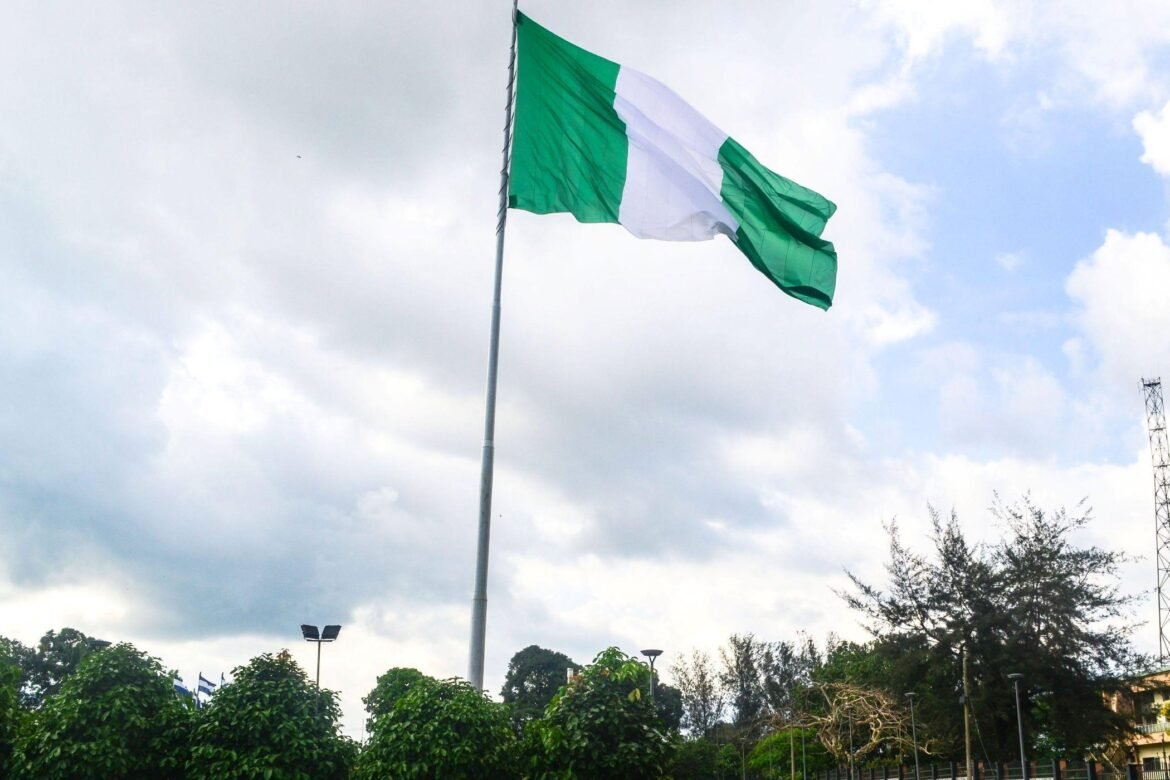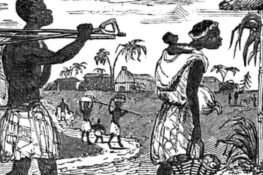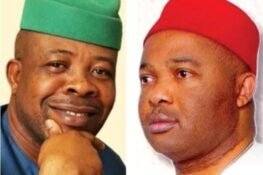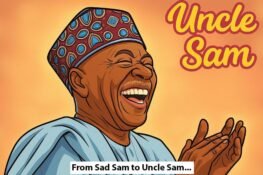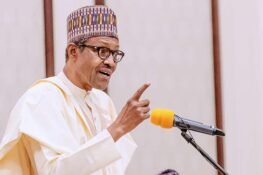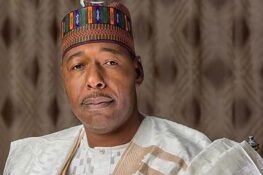The politics of identity which millions of Nigerians voters swallowed going into the 2023 presidential election is a dangerous prescription capable of ripping apart the country’s fledging but maturing democracy.
If Nigerians allow the invasion of these worst elements of democracy, we may have to bid peace, merit and progress a farewell.
Many things were imperfect about this election but the blatant use of ethnicity and religion by politicians to win has become my bigger worry.
The manner in which politicians played ethnic and religious cards to gain political power is a clear danger to democracy.
The dictionary definition of identity politics is one where groups of people having a particular racial, religious, ethnic, social, or cultural identity promote their own specific interests or concerns without regard to the interests or concerns of the larger society.
Politics of identity promotes culture wars which often cause distractions that lead to dysfunctional democracies, where parties are more interested in power for the sake of it, than service to the people.
It is this kind of politics that has caused the United Kingdom to have four Prime Ministers since 2016, the United States to be led by a liar like Donald Trump and voters to send an unrepentant scammer from the State of New York, George Santos, to the US Congress.
Politics of identity breeds mediocrity, turns people against each other, shifts focus to the unthinkable and pitches common sense against brainlessness.
It not only divides, it destroys. And that is the road that Nigeria has started to travel.
Ethnicity has always been a useful tool in the hands of Nigerian politicians.
It has been the easiest way to plant distracting sentiments and harvest underserved votes, since the nation itself was built along tribal fault lines at independence.
But the deepening of ethnic identification mixed with religion in this election should be troubling to well-meaning citizens.
The administration of President Mohammadu Buhari has been insensitive to concerns of religious dominance and tribal annihilation over the last eight years during which he allowed Fulani herdsmen, his kinsmen, and Islamic terrorists to have a free rein, which many Nigerian Christians interpreted as an imposition of a religious preference and an ambition to undermine their faith.
The country is multi-ethnic and multi-religious, with over 250 ethnic groups and different religious beliefs.
Many things were imperfect about this election but the blatant use of ethnicity and religion by politicians to win has become my bigger worry
Politicians have often used these differences to their advantage, exploiting them as factors to gain or remain in political power.
The 2023 presidential election was no different.
Several political actors openly played sectional cards to curry favor with voters.
Some promoted the idea that only a president from a particular ethnic group or religious faith had the right to political offices.
This approach was highly divisive and created tension before, during, and after the election.
The specter of ethnic and religious violence is a nightmare that Nigeria cannot afford to experience again.
The country is still recovering from the scars of previous ethnic and religious conflicts, and another one may be fatal.
Using ethnicity and religion during the presidential election was a distraction from the real issues that Nigerians face, including insecurity, unemployment, poverty, corruption, and poor infrastructure.
These are issues that require urgent attention, and the focus should be on how elected officials intended to address them.
Nigeria’s challenges are neither ethnic nor religious. What Nigerians need are leaders with a clear vision, concrete plans, and the political will to execute.
Politicians are only required to articulate their plans for the country and how they intend to deliver on their promises.
Currying the favor of ethnic and religion leaders by politicians is a distraction from the need to build a united and inclusive Nigeria.
And those leaders who allowed themselves to be patronized have to bury their heads in shame.
Nigeria’s diversity is its strength, and the country can only progress when all its citizens feel a sense of belonging and are treated fairly.
Elected officials who promote unity, inclusivity, and equity would be the best bet for Nigeria’s progress.
The danger of using ethnicity and religion as a political tool is not lost on anyone.
The consequences can be dire, leading to conflict, division, and ultimately, the collapse of democracy. Nigeria’s democracy is still fragile and needs nurturing and protection.
There were reports of clashes between supporters of different political parties in some parts of the country, and this was a worrying trend that could escalate into full-blown violence if not checked.
The Punch newspaper wrote an editorial about one of the adverse effects of identity politics on March 6, titled: “2023 polls: Stop intimidation of opponents in Lagos.”
Lagos State experienced a seismic political event during the election as the eventual president-elect lost his own state to a smaller party with a followership strongest among another ethnic group. In the aftermath, ethnic attacks were unleashed.
Worried, The Punch pleaded: “There have been reports of physical attacks, threats to evict non-natives from the state, and denial of access to social services because the presidential candidate of the All Progressives Congress, who is from Lagos, lost the state to Peter Obi, the Labour Party candidate from Anambra State in the South-East. The security agencies and leaders of thought in Lagos and throughout the South-West should defuse this incendiary trend with urgency.”
Identity politics is an ill wind.
It upsets normalcy and turns people against each other based on ethnicity, religion and other factors it introduces.
Identity politics is a trick of politicians who have nothing worthwhile to add to society, but have found ways to use subtle divisive elements to create cracks so that they can ride on that division to gain popularity.
Although it has one of the most stable democracies, the United States has been suffering from the pangs of identity politics.
The Republican Party, bereft of new and transformative ideas and fearful of a changing demography, has nurtured divisive means such as race, guns, abortion, religion and law enforcement to remain relevant.
Donald Trump, obviously unprepared for leadership, had little problem rising to power in 2016 as he captured the attention of those Americans unified by race, religion and cultural wars against their own best interests – aided by fake news and dogma.
It appears Nigerian politicians have imported the worst characteristics of politics from America and the UK in order to win by any means at home.
So much has been written about the uniqueness of the 2023 presidential election, where the mighty have fallen and the lie about the population of voters in Nigeria has been exposed.
Instead of thinking about improving what has worked, politicians are at loggerheads about rigging. Which election has not been trailed by such claims since 1960?
Facts do not add up to support the claim that significant rigging that could sway the outcome of the election occurred. When we consider those who lost and won and where, it makes the election a marvel.
Politicians claim rigging where they lost but are silent where they did well. That is the politics of Donald Trump.
While we should let the judiciary decide litigations related to the election, the greater concern to me is not rigging. It is the use of religion, ethnicity and cultural issues to influence unsuspecting citizens in such a way that stratifies a nation that is already breaking.
Religious leaders who injected themselves incorrigibly into party politics when they suggested which party or candidate their flocks should prefer have behaved irresponsibly and against their spiritual calling.
Not only have they done a disservice to God and humanity, they have exposed themselves to dishonour.
All Nigerians, regardless of party affiliation, ethnicity, religious persuasion, social background, gender or other identifying factors must rise above identity politics
For failing to give unto Caesar what is Caesar’s and unto God what is God’s, their days of relevance are numbered.
There are too many hungry “men of God” in the country adding fuel to the fire, instead of being part of the solution to Nigeria’s problems. Their false prophecies and manipulation are condemnable.
It is the responsibility of all stakeholders, including political parties, elected officials, the media, civil society, and the citizens, to promote a peaceful and fair elections.
Political actors must avoid hate speech, incitement, and any action that could trigger violence.
The media must be responsible in their reportage, avoiding sensationalism and biased coverage.
Civil society must remain vigilant and hold elected officials accountable. Ordinary citizens must be reasonable and not be purveyors of fake news. Everybody has a role to play in nurturing democracy.
Poverty, epileptic energy systems, poor healthcare delivery, decaying schools, non-independent judiciary and corrupt law enforcements are not ethnic or religious problems.
All Nigerians, regardless of party affiliation, ethnicity, religious persuasion, social background, gender or other identifying factors must rise above identity politics.
As Nigerians, we have to demand that politicians articulate their plans with ideology as the foundation.
It is only by voting on issues that Nigerians care about that we can hold leaders accountable and ensure good governance.
